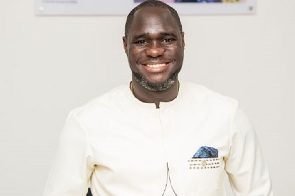Sekondi August.11 (Smith)-GNA-A continuous 11-year basic education system is to be introduced to address the limitations of the country's basic education system under the education reform, the implementation of which has started, Mr Maxwell Ayyu Morgan, Shama-Ahanta East Metropolitan Director of Education, said on Friday.
He was closing the 19th annual delegates' congress of the Western and Central sector of the Teacher Trainees Association of Ghana (TTAG) at Sekondi.
The congress was on the theme: "Ghana's New Educational Policy-Challenges To The Teacher Trainee".
Mr Morgan said the 11-year basic education system would comprise two years of kindergarten, six years of primary, three years of junior high school and four years of senior high school.
He said "The junior high school (now JSS) would change from becoming a terminal point to an entry stage for a comprehensive system of senior high school training in vocational, technical, agricultural and general education and a structured apprenticeship".
Mr Morgan said the content of the curricula, syllabi, textbooks and instructional materials for all levels would be reviewed with regards to its suitability, adequacy and availability.
Mr Morgan said: "the senior high school would be organised both as a terminal education for entry into the world of work and as a preparatory stage for entry into tertiary education".
"As part of the reforms at this level, Mathematics, Computer Studies, General Science, Social Studies and English will be compulsory subjects in the first two years" adding, "as soon as more teachers are trained, French will also become a compulsory subject".
Mr Morgan said under teacher education, the policy was that by 2015, all levels of education would be staffed with professionally trained teachers.
He said a National Teaching Council would be established to become a teaching and licensing coordinating body to run the affairs of teachers.
Mr Morgan said further that all teacher-training colleges would be upgraded to diploma-awarding institutions to be affiliated to the education-oriented universities.
He said competency-based training courses and distance education courses would be organised for non-professional teachers to enable them to qualify as professional teachers.
Mr Morgan said in connection with management of education at the pre-tertiary level the Education Reform Review Committee recommended decentralisation, which would be implemented from the 2006/2007 academic year.
He said the district, municipal and metropolitan directorates of education would take responsibility for a number of administrative and managerial issues and education offices would become education departments of the district assemblies.
Mrs Angelina Qutin Tandoh, Vice-Principal of Holy Child College, Sekondi, who presided swore-in 11-member executives of the TTAG. The executive included Mr Ernest Andoh, President, Nana Asempa, Vice President, Miss Beatrice Workpor, Secretary and Miss Rosina Ampong, Assistant Secretary.
General News of Friday, 11 August 2006
Source: GNA
















